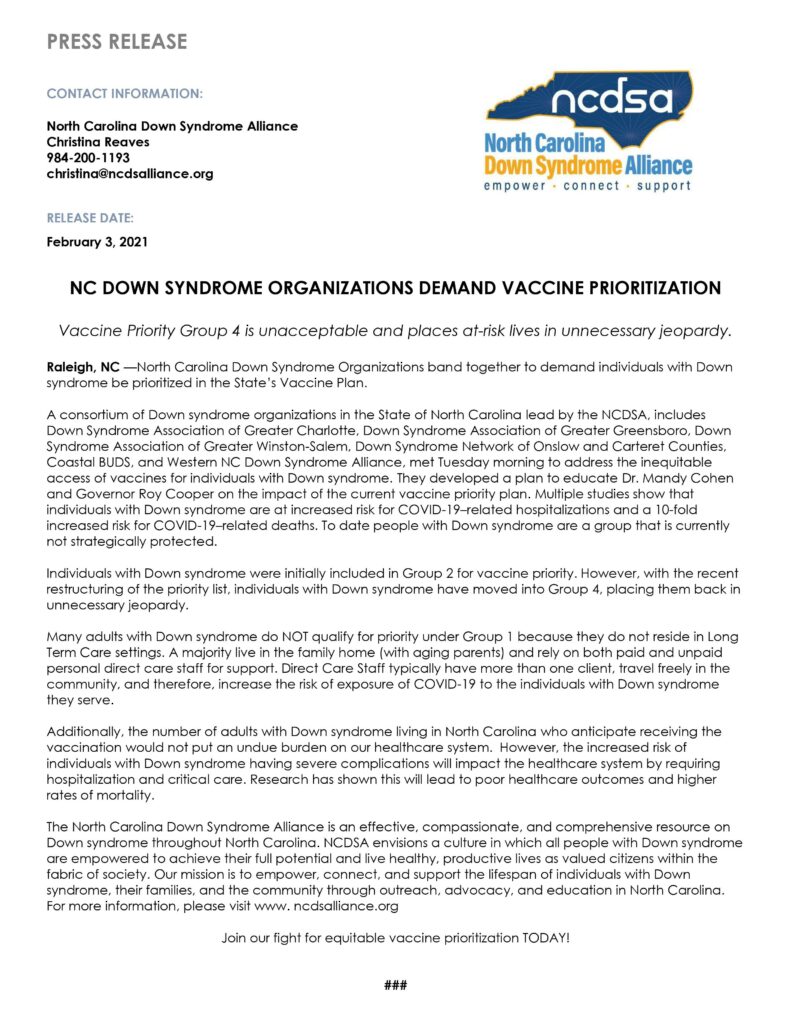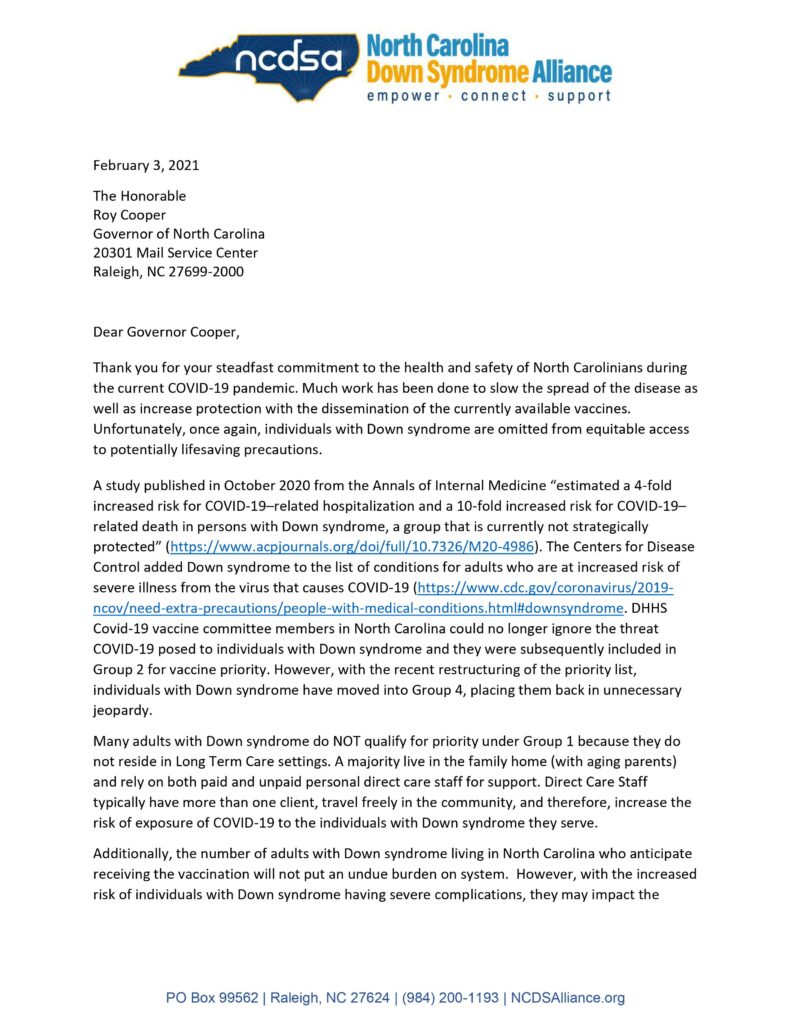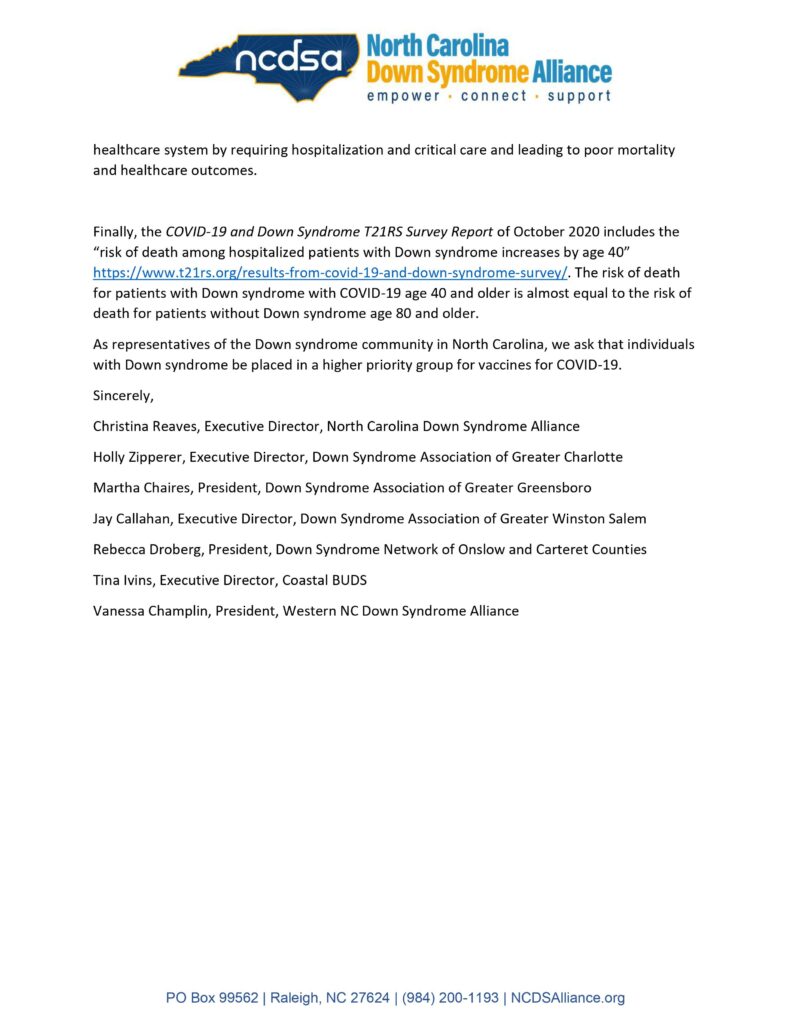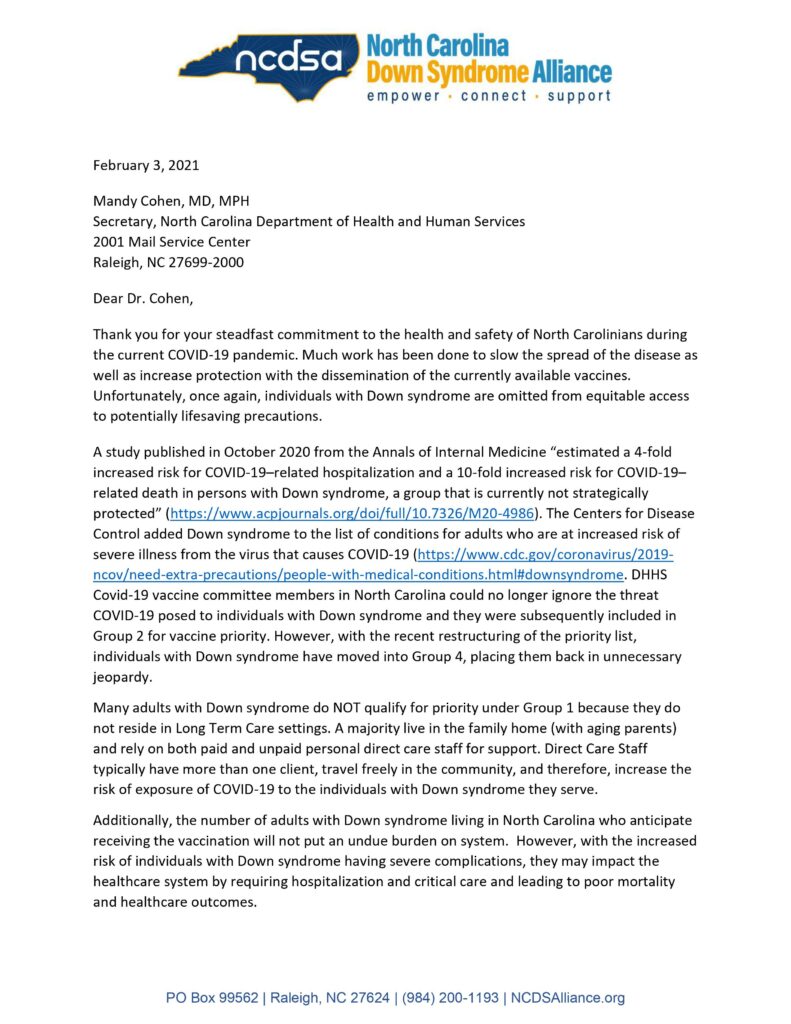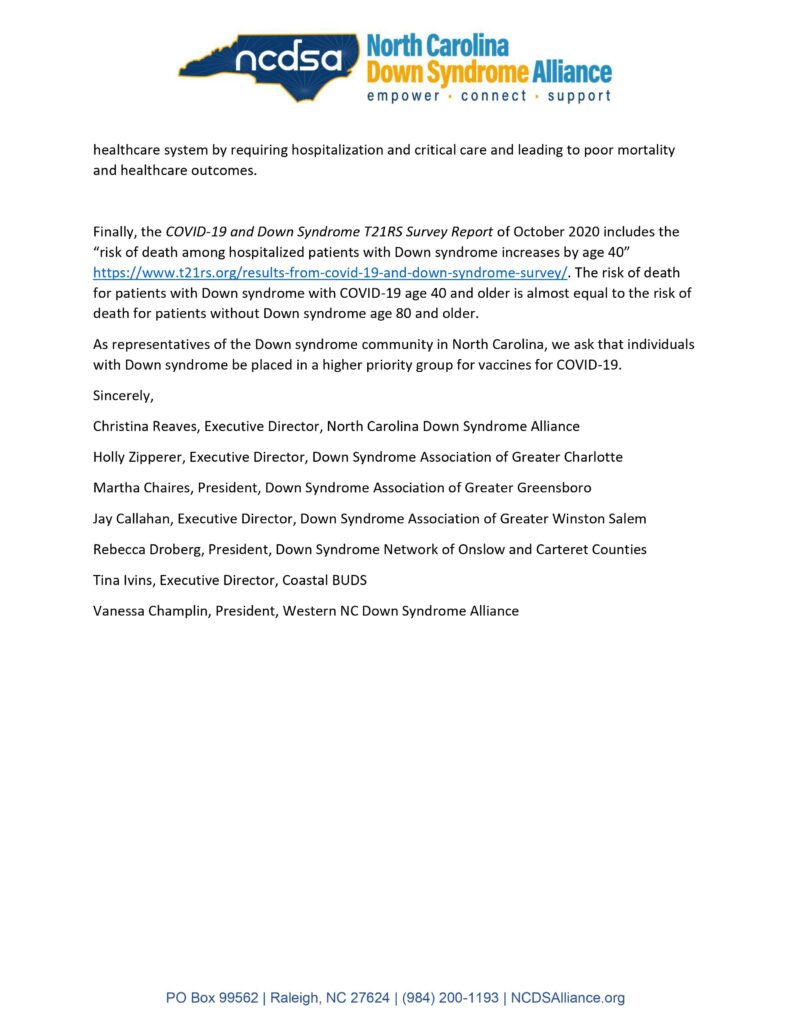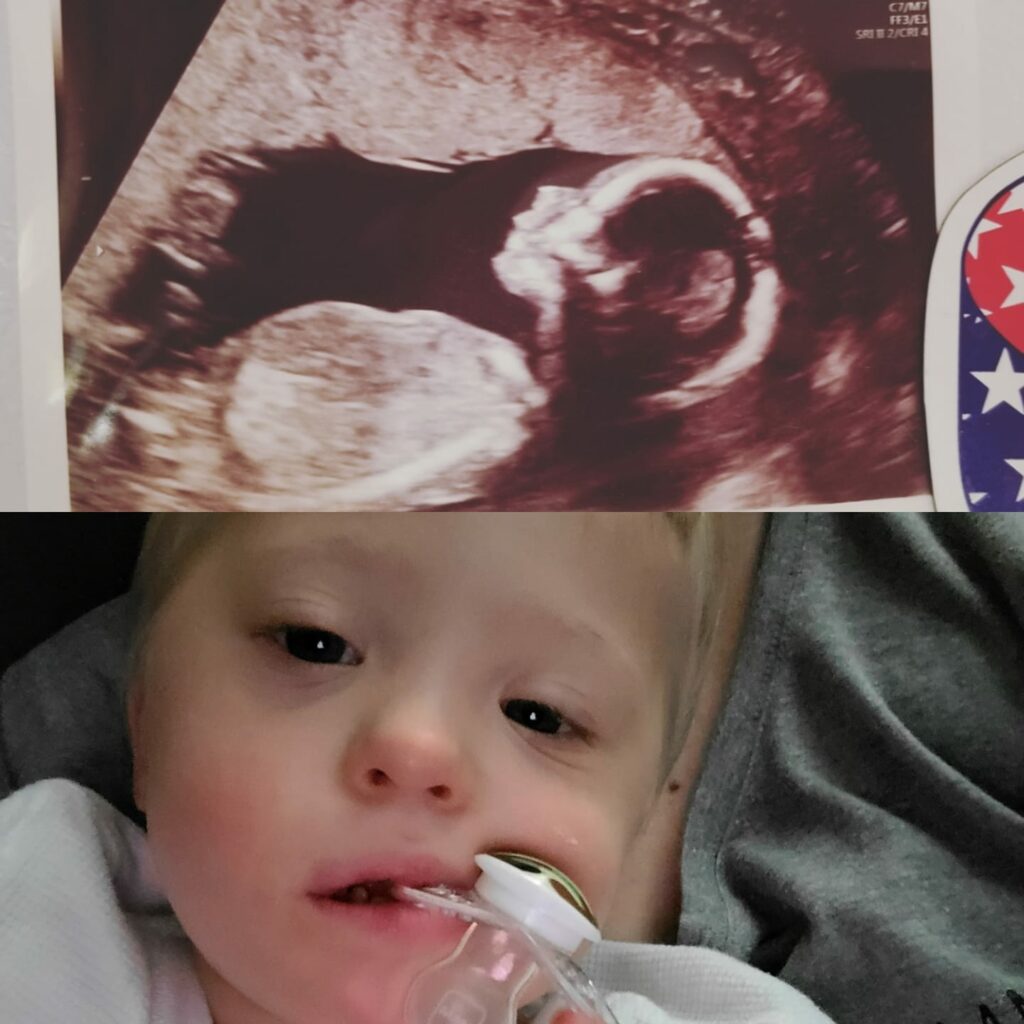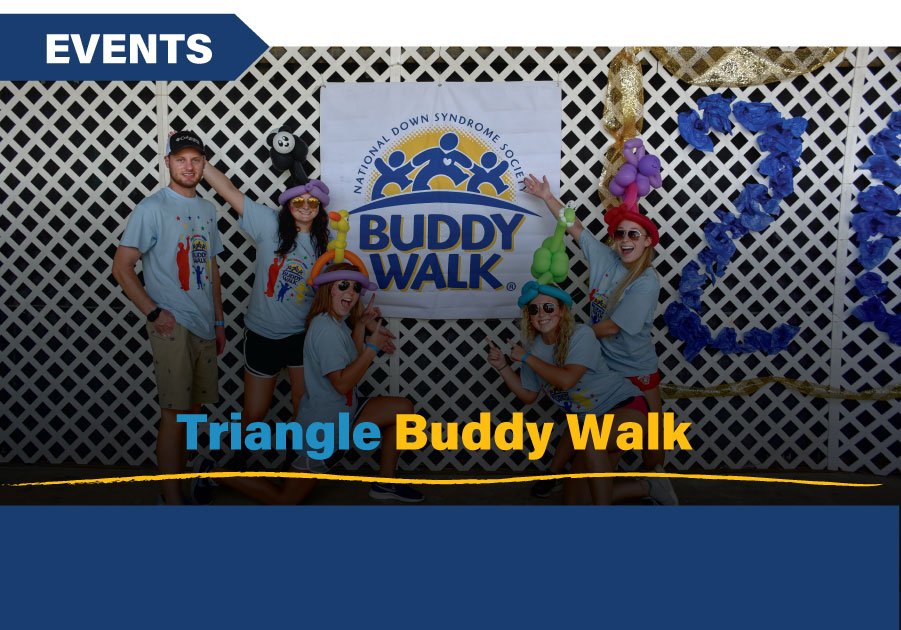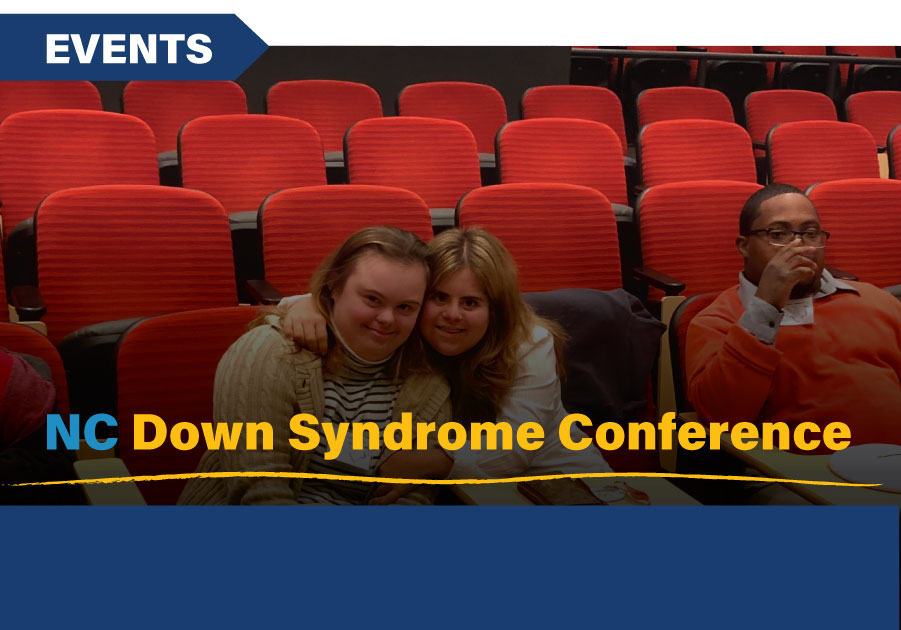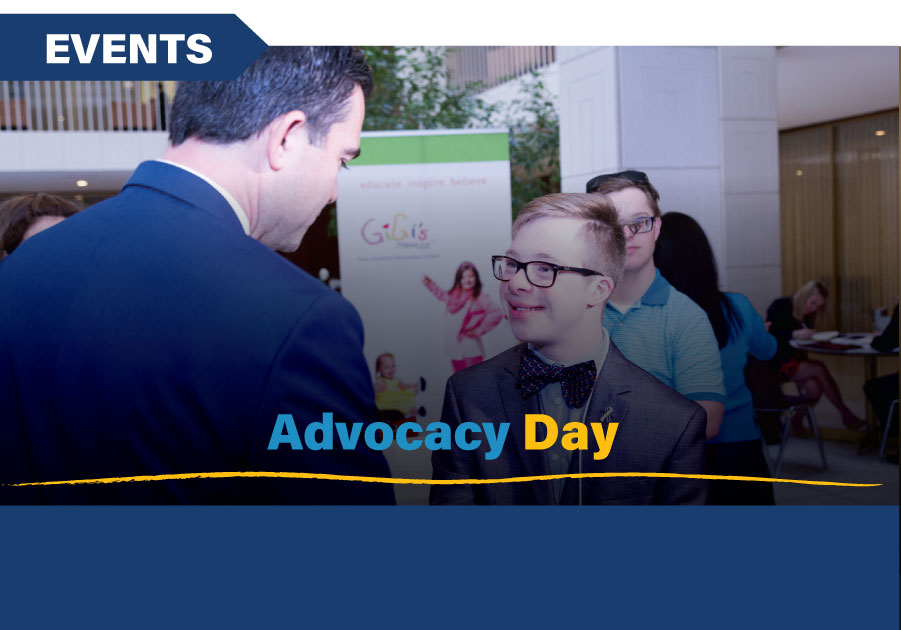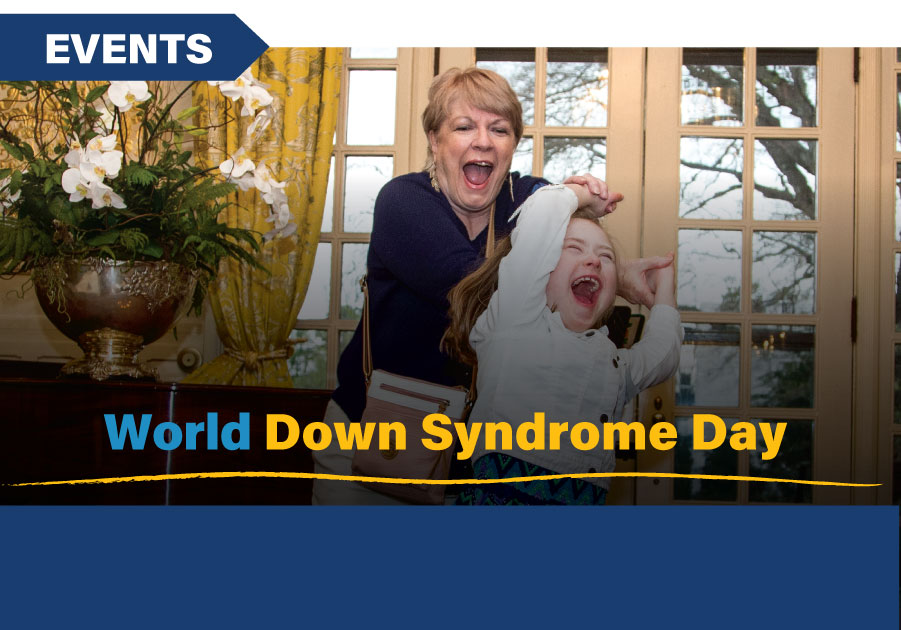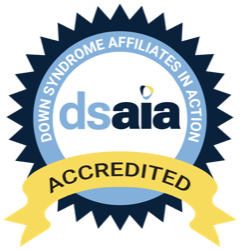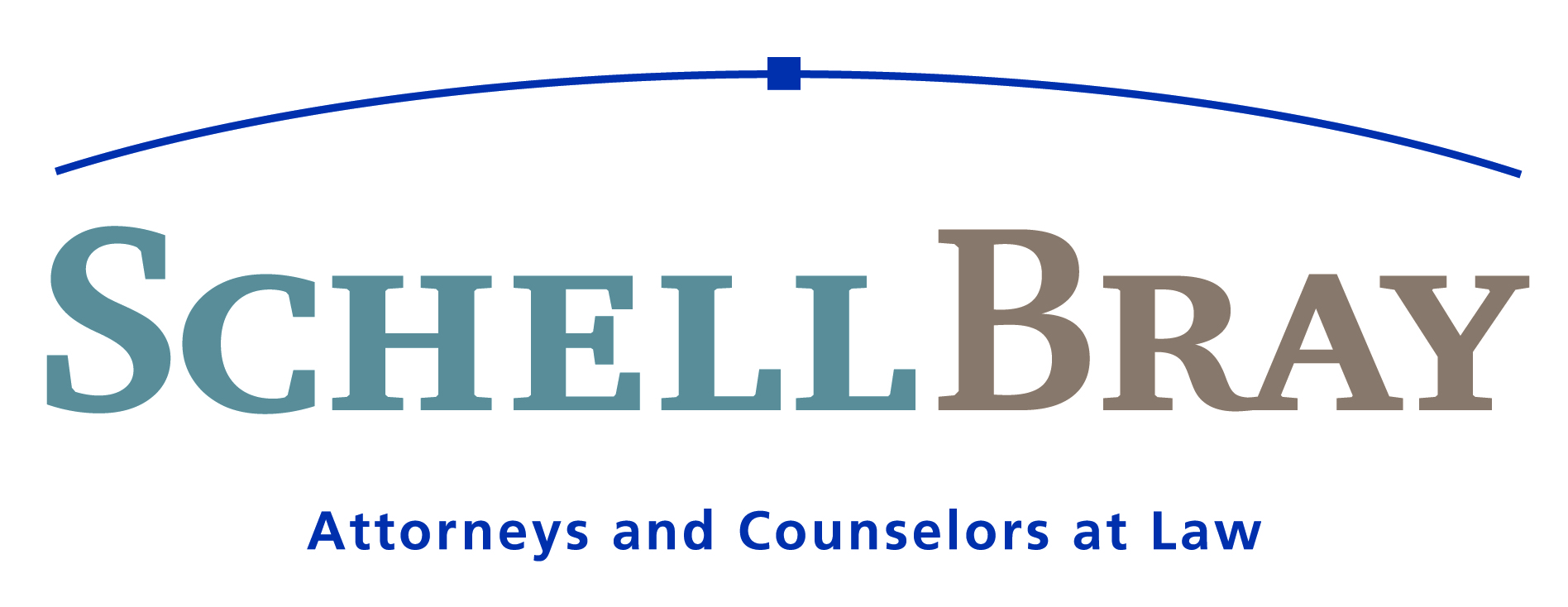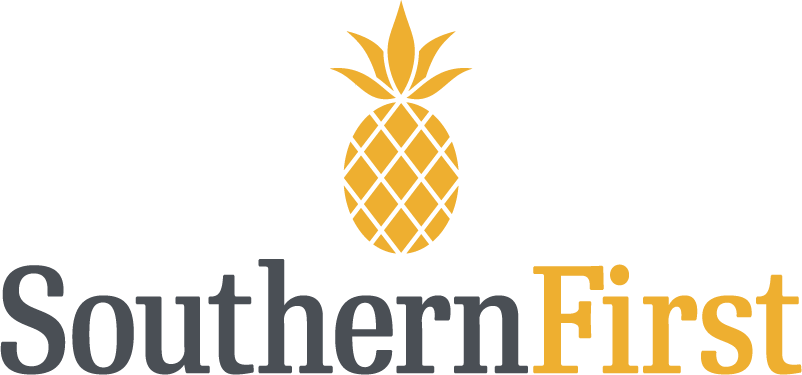Response from the State is consistent
People with Down syndrome are being overlooked
Advocacy efforts to have adults with Down syndrome included in the equitable distribution of available COVID-19 vaccines have been denied. The response from the North Carolina Department of Health and Human Services (NC HHS) and the Office of the Governor has been consistent. The State maintains adults with Down syndrome are included in NC HHS vaccine distribution in Groups 1, 2, and 3. This may be true in theory.
Decision makers need to be educated on the reality of the situation.
North Carolina Down Syndrome Alliance (NCDSA) has organized a consortium of North Carolina Down syndrome support organizations from across the state. The consortium is working together on behalf of people with Down syndrome to gain access to currently available COVID-19 vaccines.
Now it’s your turn.
We are stronger together as we work to demand individuals with Down syndrome be prioritized in the State’s Vaccine Plan. It’s as easy as sending an email. Everything you need is provided – letter templates, contact information, social media feeds.
Call to Action for Vaccine Prioritization!
Contact Dr. Mandy Cohen & Governor Roy Cooper
Contact your Members of the North Carolina General Assembly
Contact:
Mandy K. Cohen, MD, MPH Secretary, North Carolina Department of Health and Human Services
mandy.cohen@dhhs.nc.gov
North Carolina Department of Health and Human Services
2001 Mail Service Center
Raleigh, NC 27699
Twitter: @SecMandyCohen
Facebook: https://www.facebook.com/ncdhhs
Governor Roy Cooper
Email: NC Gov. Cooper: Contact Governor Cooper
North Carolina Office of the Governor
20301 Mail Service Center
Raleigh, NC 27699-0301
Twitter: @NC_Governor
Facebook: https://www.facebook.com/NCgovernor/
Your North Carolina State Senator and State Representative
Find your legislators
Letter and Email Template:
Your State Senator and State Representative

